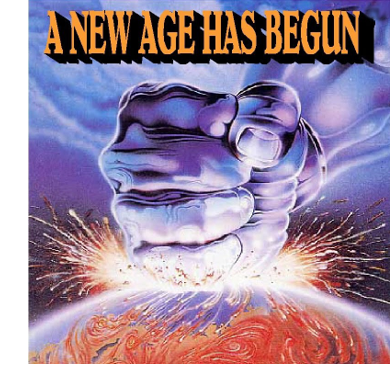The role of project manager, particularly the person who fulfils it in terms of experience, capabilities and skillset, cannot be underestimated in the pivotal role they play in leading transformational change. Along with the key decision maker they enable successful delivery of strategic intent through the outputs, capabilities, outcomes and/or benefits to the customer.
 But the rise of digital disruption, particularly artificial intelligence and automation will indelibly change how projects are delivered despite the proliferation of industry best practice programme and project management methodologies and Agile product delivery frameworks and governance processes.
But the rise of digital disruption, particularly artificial intelligence and automation will indelibly change how projects are delivered despite the proliferation of industry best practice programme and project management methodologies and Agile product delivery frameworks and governance processes.
Specifically, project portfolio management tools will increasingly use predictive analytics to make informed forecasts about unknown future project events. It will use several techniques from data mining, statistics, modelling, machine learning and artificial intelligence to analyse current project data, and trends, or the lack thereof, to make predictions about the likelihood of future success based on set parameters and empirical data.
It will fundamentally improve risk management practices by identifying potential risk threats beyond the visibility of the project direction and management layers before they eventuate into major issues. In doing so, it will also highlight those skills that cannot be easily automated such as critical thinking, creativity and emotional intelligence to name a few. At this point, let’s explore these important skills in more detail aligned to project management processes, practices and people.
-
Critical thinking is essentially the process of deliberate, systematic and logical thinking on any subject, while considering bias or assumptions that may affect discussion. Given the project manager role is to track any potential business or service risk threats or opportunities, report the impact and facilitate effective resolution. It is in this facilitation where project managers can bring value and realise the benefit of critical thinking. It's the exchange of probing questions and answers designed to challenge assumptions, expose bias and foster creative solutions. Project managers who can think this way and facilitate these types of discussions will be able to resolve potential risk threats more quickly, develop better solutions and reduce project risks.
-
Creativity involves two processes: thinking, then producing. Creativity is a skill you can develop with practice and a process you can manage. Discover how the interplay of art, design and technology can help you solve problems and inspire creative solutions desired by your customers. Like the Japanese martial arts concept, Shu-Ha-Ri which describes the stages of learning to mastery. Similarly creativity begins with a foundation of knowledge, learning a discipline, and mastering a way of thinking. You can learn to be creative by experimenting, exploring, questioning assumptions, using imagination and synthesising information. This is about applying and adapting any project management training and knowledge to the specific characteristics of the project and the organisational environment in which it is being managed to ensure early delivery of value and success against set project parameters.
-
Emotional intelligence is essentially the way you perceive, understand, express and manage emotions. It’s important because the more you understand these aspects of yourself, the better your mental health and social behaviour will be. It also helps deal with herding cats idiom denoting a futile attempt to control or organise a class of entities which are inherently uncontrollable - as in the difficulty of attempting to command a large number of cats into a herd. An occurrence that is not too dissimilar to project management, particularly when trying to align the direction, management and delivery management layers to successfully deliver strategic intent and early delivery of customer value. Emotional intelligence is the ultimate soft skill, encompassing everything from the way we listen, communicate and resolve conflict to how our teams work together and stay motivated.
Adapted from Gartner in “The Future of Work and Talent: Culture, Diversity, Technology” the future of work is about forging a new relationship between technology and talent that transforms project management and existing ways of working. The technology organisations invent and use no doubt invariably shapes project managers, and those who support them. It does so through our relationships, processes and practices, particularly in how we work and how we organise work.
Disruptive new project portfolio management technologies continue to emerge, compelling project managers to adapt and respond ever faster, particularly to the human and productivity implications of remote work technologies. Large-scale, long-term changes in technology, diversity and culture are transforming more than just jobs. They are transforming the meaning and value of work and the reasons we work. This can only be a good thing for customers, where outputs, capabilities, outcomes and/benefits i.e. a product or service that is of continued value to the customer.
In summary, digital disruption is globally transforming the way we work and no organisation, industry or profession is immune. It presents both new challenges and opportunities for project management as people deal with the proposition of disrupt or be disrupted. The Project Management Institute’s 'Maximizing the Benefits of Disruptive Technologies on Projects' report states that innovators are leveraging technologies (i.e. Cloud solutions, IoT (Internet of Things), Artificial intelligence (AI), 5G mobile internet and Voice-driven software) to their advantage to encourage greater project management efficiency and automation, increase productivity, promote the development of better products and services for customers, automate mundane tasks, advance innovation, and drive better decision making by those accountable for the success of a project.





